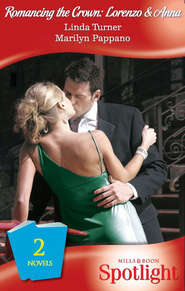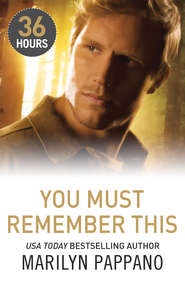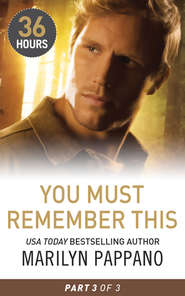По всем вопросам обращайтесь на: info@litportal.ru
(©) 2003-2025.
✖
Passion to Die For
Автор
Год написания книги
2018
Настройки чтения
Размер шрифта
Высота строк
Поля
Because they shared a connection somewhere in their past? In the five years Ellie had lived in Copper Lake, she’d had little to say about her twenty-five years elsewhere. She was an only child, her parents were dead, and her only relatives were distant, figuratively and literally. He knew she’d had some unhappy times, but she’d never been open to discussing them.
A woman should be willing to discuss her hurts and disappointments with the man she’d been seeing for the better part of five years.
The wind gusted, scattering sodden dead leaves across the square, and it sent a chill through him. His jeans and leather jacket weren’t enough to stand up to the cold, but Ellie didn’t seem to notice the temperature. Granted, she wore a long wool coat, but there was an air of detachment about her. Anamaria would probably say her aura was the translucent shade of blue ice.
“Why don’t you go home?” he suggested, wanting very much to do the same.
“Are you going to continue harassing me if I don’t, Detective?”
“Come on, Ellie.” He wasn’t comfortable leaving her, or any other woman, alone in the gazebo with midnight approaching. Copper Lake’s crime rate was nothing compared to the big cities, but bad things still happened to innocent people.
She opened her mouth as if to argue, then closed it again and stood, arms still folded across her middle. There was another papery crackle. From something hidden beneath her coat?
She passed without touching him, and when he fell into step beside her, she scowled. “I can make it to my car alone.”
“It’s on my way.”
Those were the last words either of them said until they reached the small parking lot that opened off the alley behind the deli. Her lime-green VW Beetle was the only car in the lot, parked under the lone streetlight, its lights flashing when she clicked the remote. She would have gotten in and driven away without a word, but he laid his hand on her arm, stopping her.
“Ellie, if you need to talk—”
Even through the bulk of the coat, he felt her muscles clench. She looked at him, then at his hand, and he withdrew it. The night chill had nothing on her gaze. “Thank you for the escort.”
Her polite words were as bogus as his response. “You’re welcome.” Pushing his hand into his pocket, Tommy stepped back and watched as she slid behind the wheel, started the engine, then drove away. He stood motionless long after her taillights disappeared down the alley, until another blast of wind hit him, this time dampened with more rain moving in.
Damn, she was cold. Damn, she was distant.
And damned if he didn’t still love her.
Ellie’s house was located at the end of Cypress Creek Road, just before it made a sharp right turn and became Magnolia Drive. It wasn’t a trendy part of town; her neighbors were mostly as old as her house, on the downhill side of sixty. The house was small, but the floors were hardwood, it had an attached garage and the price had been reasonable. Besides, most of her waking hours were spent at the restaurant. The house was used mostly for sleeping and doing laundry.
And, off and on until last spring, for having great sex with Tommy.
She would have been touched by his stopping at the gazebo and walking her to her car if she didn’t know him so well. He would have stopped for anyone, ex-lover, acquaintance or total stranger. He was a protector from the inside out. Ensuring other people’s safety wasn’t just his job; it was who he was.
She’d desperately needed someone like that fifteen years ago. She hadn’t had him then, and she couldn’t have him now. Didn’t deserve him now.
She let herself into the house from the garage, leaving her coat in the utility room and walking through the dimly lit kitchen into the living room. None of the furniture was anything special, and the dishes and linens had been chosen by an accommodating clerk at the housewares shop at the mall. Ellie could walk away from it all and never miss a thing.
Except, possibly, the four-inch heels she admired before kicking them off her feet.
Once she was settled comfortably on the couch, she reached for the large envelope Martha had given her, sure what was inside before she opened it. Police reports, complaints, convictions, photographs. It hurt to see herself at fifteen—still young and naive—and then at sixteen and seventeen. Like Martha, she had aged far more than the months could account for. By the age of eighteen, there’d been a hollowness about her, in her face and her eyes and her soul. She’d wanted to end it all—the pain, the shame. She’d had only one reason to live, and even that had been short-term.
Ellie went to the fireplace, put a sheet of paper on the grate and struck a match to it. As the edges curled with flame, she added another page, then another, report after photo after complaint. When the last piece was burning, she held the envelope over it, feeling the heat from the fire, holding it until she risked a burn. It dropped to the ashes on the grate, and the flames consumed it with a final wisp of smoke and a lingering, sooty fragrance. She stirred the ashes with the fireplace poker, breaking them into smaller pieces that fell through the grate, grinding them to powder until she was satisfied they’d been destroyed.
All those years ago, she hadn’t thought she would live to see thirty. And here she was, not only alive but reasonably well. She had a house and a business. She had the friendship and respect of the people she did business with. She was a success by anyone’s standards.
Would she still be a success if she refused Martha’s blackmail?
She wanted to believe the answer was yes, that her friends would remain her friends, that who she’d become would be more important to them than who she’d been. She wanted to believe that she was good enough, changed enough, to rise above her past.
She wanted to believe that she’d earned the life she had now, that she deserved it.
But the truth was, she didn’t know. She was a fraud, masquerading as someone no different from anyone else in Copper Lake. She’d lied to them about her background and her family. Ellie Chase was someone they could relate to. Bethany Dempsey wasn’t.
She was no stranger to disappointment and rejection. Her mother and father hadn’t been the first to turn away from her, nor had they been the last. And if her own parents hadn’t been able to accept and forgive her, how could she count on people like the Calloways to do so?
How could she ever expect Tommy—the protector, the cop, the good guy—to do so?
She could leave. Disappear. Put the restaurant and house up for sale. Only her lawyer would need to know how to contact her, and Jamie Munroe-Calloway wouldn’t share that information with anyone, especially Martha.
Let the mother who’d abandoned her bleed her dry, give up everything that mattered and run away like a coward, or stand up to Martha and risk the loss of everything—and everyone—that mattered.
It was a hell of a choice.
Chapter 2
“I hate rain.”
Tommy leaned his head against the Charger’s headrest and watched the house down the street through slitted eyes. He was partnered with Katherine Isaacs this week and wondering whether it was because he was good at what he did or if the lieutenant was punishing him for something.
Kiki might be the department’s newest detective, but she was also its biggest whiner. She bitched about everything: rain, sun, heat, cold, driving, not driving, having to arrest someone, not getting to arrest someone.
“Piss off, Kiki,” he muttered, shifting in the seat.
She scowled at him. “I hate that nickname.”
“Yeah, yeah. Whine to someone who cares.” It was warm inside the car, so he switched the engine on long enough to crack the windows an inch or two. Fresh air blew in, the raindrops it carried a small price to pay for its cooling effect. They’d been parked under the trees down the road from a drug dealer’s house for hours now, the black Dodge practically disappearing in the gloomy overcast, and so far they hadn’t seen anything more interesting than a dog taking a leak on the dealer’s steps.
“Are you always this pleasant on surveillance?”
“Yeah, pretty much.”
“You’re supposed to be teaching me.”
She stabbed at the button to roll up the window, but he’d turned off the car again. The rain wasn’t coming in on her side, but the humidity was. Before long, her hair would frizz out like a ’70s Afro. He knew, because she’d whined about it the first time he’d rolled down the windows.
Sprawled in the driver’s seat, head tilted back, he said, “Okay, listen up. This is me teaching. When you do surveillance, you park someplace where you’re not real noticeable, you settle in and you watch your target. If you’re real lucky, you’ll actually see something. Most of the time, you sit until your butt goes numb and you get nada. You don’t eat anything that smells offensive. You don’t get crumbs or wrappers in my car. You don’t drink more than your bladder will hold. You don’t fall asleep. And you don’t complain.” He turned his head so he could see her. “Oh, wait, I forgot who I was talking to. Kiki Isaacs, queen of complainers.”
“That’s Detective Queen of Complainers to you.” She fluffed her brown hair, starting its inevitable frizz. “I don’t complain. I make my opinions known. Keeping things inside is bad for your health.”
“Then you must be the healthiest person I’ve ever met. Be quiet now. You’re fogging up my windows.” He used a napkin to wipe the windshield, then leaned back again.
The house they were watching sat isolated from its neighbors. A fire had taken out the house to the west, and the one to the east had been leveled by a tornado. That probably suited Steve Terrell just fine. His own lot was overgrown, and junk filled the yard. The screens on the windows were torn and rusted, patches of shingles were missing from the roof and the paint was a truly ugly shade of purple.
An informant had told them that Terrell was expecting a shipment around nine that morning, but it was now one in the afternoon and there hadn’t been any movement on the street at all. Even the neighbors were either gone or staying home.
Drifting on the damp air came the scent of wood smoke and Tommy breathed deeply. He’d given up smoking more than a year ago. It had taken him six months to get from five cigarettes a day to none. He’d think it was completely out of his system, and then he’d catch a whiff of smoke—even the sour stench of burning leaves—and want a cigarette so badly he could taste it. Kiki’s slow intake of breath, a signal that she was about to speak again, doubled the desire.











